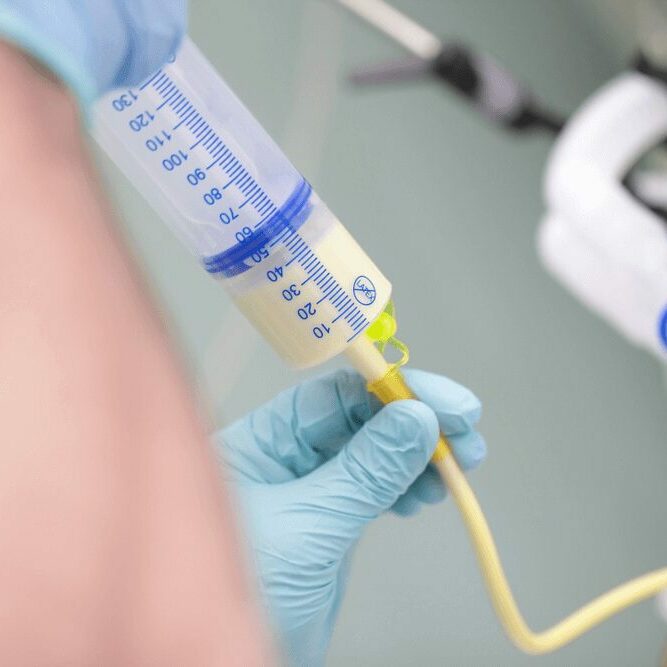Nutrition
Proper nutrition is complex, especially for individuals with spinal muscular atrophy (SMA). There are no studies that conclusively prove one type of diet is best for someone with SMA, so each individual and family must make decisions based on your needs.
Nutrition Considerations
Individuals with SMA receive many benefits from good nutrition, including:
- Improved growth
- Better breathing
- Illness prevention
- Improved motor function
- Better quality of life
Factors that can affect nutrition decisions for individuals with SMA, include:
- Under- or over-nutrition
- Bone health
- Low blood sugar
- Feeding issues, such as difficulty chewing and swallowing
- Aspiration, which happens when small amounts of food or liquid enter the windpipe instead of the stomach
- Abdominal problems, including diarrhea, bloating, and vomiting
- Gastroesophageal Reflux Disease, also known as GERD or acid reflux disease
- Constipation


Care in Nutrition
A Registered Dietitian or Nutritionist (RD or RDN) can provide expertise and education to help you make a nutrition plan.
Nutrition decisions should be made after consulting with a registered dietitian, nutritionist, or doctor who understands SMA. Growth rates for individuals with SMA differ from growth rates for healthy individuals. Weight and length/height must be charted, along with other body measurements over time, to assess risk for undernutrition or overnutrition.
A doctor or nutritionist will also give consideration to each individual’s challenges and preferences. In addition to recommending the proper amount of food intake, the nutritionist may recommend other diet alterations, including:
- Eating smaller meals
- Choosing softer foods for those with weakness in chewing and swallowing
- Supplemental nutrition
Feeding Tubes
A feeding tube may be necessary for some individuals with SMA. There are different types of feeding tubes and feeding schedules and specific considerations for each of them. Your multidisciplinary care team can help you make the right decision.



